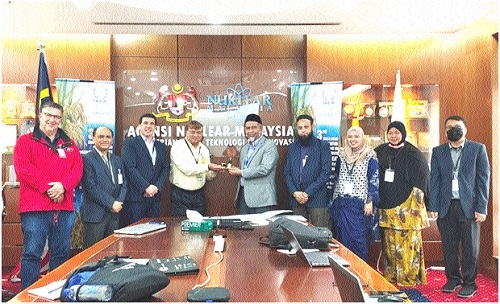IGKV develops high yielding rice variety
| Date :09-Aug-2022 |

Staff Reporter
RAIPUR,
In another success to Indira Gandhi Krishi Vishwavidyalaya (IGKV), Raipur, the institute has developed a high yielding and blast resistant rice variety ‘Vikram-TCR’ through radiation induced mutation breeding from Safri-17.
IGKV has collaborated with the International Atomic Energy Agency (IAEA), Vienna through the Department of Atomic Energy (Government of India) for further research and development work on Vikram-TCR.
As per the information received, IGKV became one member of a Collaborative Research Project on disease resistance in rice and wheat for better adaptation to climate change and started working on identification and mapping of blast resistant genes in rice mutant, Vikram-TCR. The main aim of the project is to identify and map the causal mutations/candidate genes for blast disease resistance in Vikram-TCR through advanced genomic approaches. Dr Deepak Sharma is the Chief Scientific Investigator of this project from IGKV and Dr Ljupcho Jankuloski is the project coordinator from IAEA, Vienna. Under this project, the 3rd Research Coordination Meeting was recently hosted by IAEA at Malaysian Nuclear Agency in Malaysia. The meeting marked the participation of scientists from India, USA, China, Malaysia, Bangladesh, Pakistan, Indonesia and other countries. Meanwhile, the scientists shared their experiences. From India, Dr Sharma has participated and presented his research outcomes and future directions. Every scientist at the meeting appreciated the outcomes of the research work, said the university officials. On the occasion, Dr Sharma gave a presentation on improvement and revival of traditional rice landraces of Chhattisgarh through radiation induced mutation breeding, said the officials, elaborating that looking at the outcomes of this innovative approach, every scientist wants to collaborate with IGKV for collaborative research and development works. The officials further informed that during the meeting, scientists have shared their views and discussed further collaborative R&D works especially of disease resistance in rice and wheat. Many new techniques adopted by various countries to develop disease resistant rice and wheat varieties may be adopted by IGKV in near future for developing new disease resistant and high yielding rice and wheat varieties for the farmers of Chhattisgarh. In addition, many opportunities will be opened for the scientists of IGKV to work with scientists of various countries to develop disease resistant rice and wheat varieties for the welfare of the farmers of Chhattisgarh state. During his visit to Malaysia, Dr Sharma has visited fields of several farmers in Malaysia where hi-tech farming is being done. Advanced techniques of paddy nursery management and paddy transplanting as adopted by the Malaysian farmers will be tested in Chhattisgarh for their suitability and if found appropriate then it will be applied at mass level to enhance the production and productivity of rice and wheat.